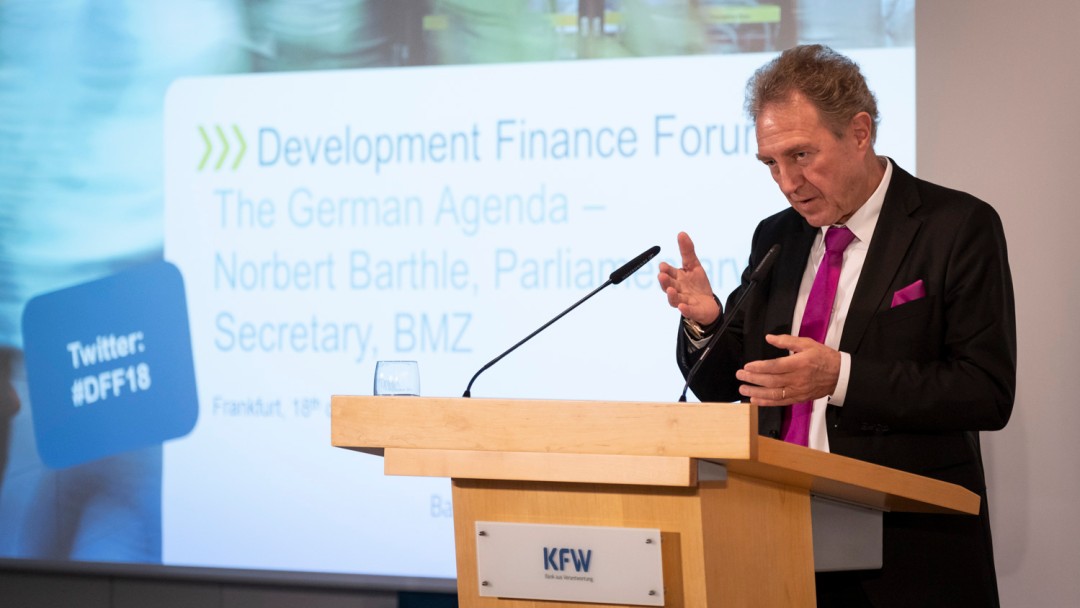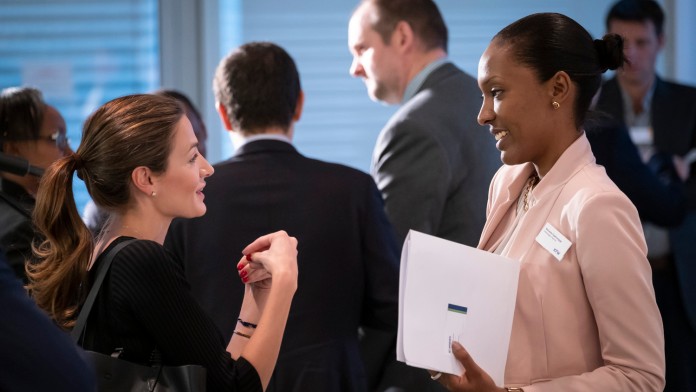News from 2018-12-21 / KfW Development Bank
Global transport transformation requires major financing
International KfW conference on sustainable urban mobility

Shortly before Christmas, 200 experts from all over the world discussed what is necessary for a global transformation in transport and how it could be accelerated. They convened at KfW's Development Finance Forum entitled "Getting on the Right Track – The Future of Urban Mobility". At present, automobiles dominate not only the cityscape itself, but also the thinking of urban planners almost everywhere in the world. Today, around one billion cars drive on the world's roads – around 98 percent of which are powered by petrol or diesel fuel. According to forecasts, this number will increase to around three billion by the middle of the century.
"You don't need much imagination to see what this means for the cities of the future," said Executive Board member Dr. Joachim Nagel in his opening speech before the conference. He noted predictions of more traffic jams, worse air quality and higher carbon dioxide emissions than before. Norbert Barthle also referred to the economic damage this would cause. "Two percent of gross domestic product is already lost today due to congestion; in Cairo it is even four percent," he calculated. Instead of constantly building new roads, the mobility of the future must be accessible, affordable, reliable, safe and climate-friendly.
Getting cars out of cities
Accordingly, one of the conclusions of the event was not to give so much space to cars in the cities of tomorrow. Aniruddha Dasgupta, Director of WRI and keynote speaker, said at the conference: "The future is electric; it lies in shared mobility – not in the private car – and in the digitally supported combination of different modes of transport." It is important to set up the proper incentives for this. Currently, the general public underwrites driving a car with about USD 9 for each dollar spent by the user (through direct costs such as the construction and maintenance of roads, indirect costs such as the consequences of accidents, etc.), while it spends only about USD 1.50 for the same amount for travelling by bus and only USD 0.08 (eight cents) for cycling. According to Dasgupta, this ratio must be reversed in favour of the last two.
If this occurred, the current forecasts regarding the increase in cars could still be influenced. We would have the choice: to steer towards a "heavenly" or a "hellish" situation and create either "just, sustainable and livable" cities or the exact opposite. He mentioned seven points that are now particularly important, which include linking various mobility offers and resisting automobiles, along with a massive expansion of local public transport in almost every city in the world.

Important role for development banks
The various discussion rounds and workshops mentioned an additional important task: drafting sustainable transport plans. Precisely because mobility services need to be expanded and different modes of transport coordinated with one another, comprehensive planning is needed – something few cities possess at this time.
In unison, the participants ascribed an important role in this "mobility revolution" to development institutions such as KfW because they could drive the change through the proper financial incentives and – in view of the enormous need for funds – should also consider the further development of approaches to financing.

Share page
To share the content of this page with your network, click on one of the icons below.
Note on data protection: When you share content, your personal data is transferred to the selected network.
Data protection
Alternatively, you can also copy the short link: https://www.kfw-entwicklungsbank.de/s/enzBWrMC.B6dA
Copy link Link copied